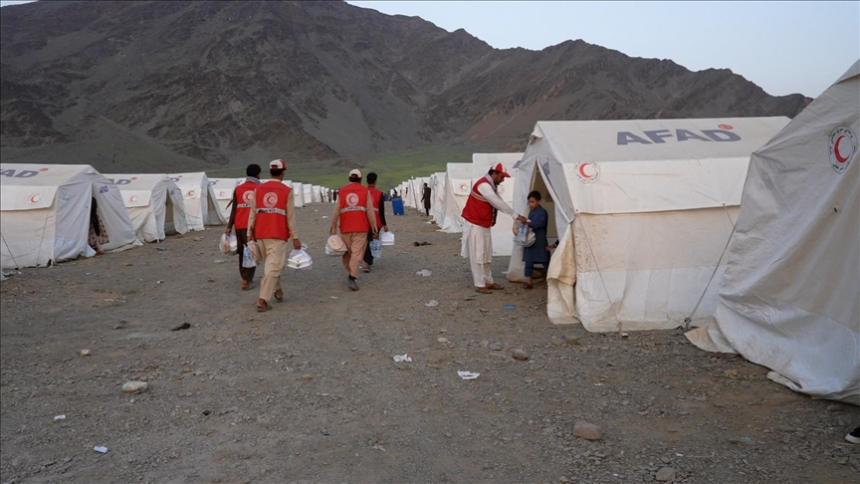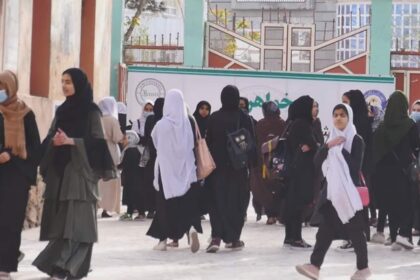RASC News Agency: The International Committee of the Red Cross (ICRC) has once again issued a grave warning regarding the deteriorating conditions confronting Afghanistani returnees, as hundreds of thousands are forcibly repatriated following years and for many, entire lifetimes spent in exile in Pakistan. The organization emphasized that, despite mounting challenges, it remains committed to supporting the returnees through continued cooperation with the Afghanistan Red Crescent Society. On Monday, April 28, the ICRC’s Asia-Pacific division released a video via the social media platform X (formerly known as Twitter), appealing for urgent international attention to the critical humanitarian situation unfolding at the Torkham border crossing one of the busiest and now most overwhelmed points of transit between Afghanistan and Pakistan. In recent months, Torkham has witnessed an unprecedented surge of deportations, compounding an already catastrophic humanitarian landscape within Afghanistan.
Helen Brandt, the ICRC’s Regional Director for Asia and the Pacific, who personally inspected conditions at Torkham, described the situation as one of the largest human displacements witnessed in the region in recent years. “We are witnessing a humanitarian emergency at Torkham,” Brandt stated. “Families are in desperate need of immediate assistance to reach their home cities and villages. Many have lived outside Afghanistan for decades; some were even born in Pakistan. For thousands, this forced return represents an alien and profoundly traumatic experience.” The ICRC called on international humanitarian organizations and donor governments to mobilize without delay, warning that the failure to address the needs of returnees could trigger an even deeper crisis, further destabilizing the fragile region.
This comes against the backdrop of Afghanistan’s ongoing humanitarian catastrophe, which the ICRC and other agencies have repeatedly described as one of the world’s worst. Over half of Afghanistan’s population more than 23 million people now require urgent humanitarian assistance, amidst collapsing healthcare, widespread food insecurity, and the near-total breakdown of basic social services. Adding to the alarm, the United Nations High Commissioner for Refugees (UNHCR) reported that since early April, nearly 120,000 Afghanistani nationals, including thousands of women and girls, have been expelled from Pakistan and forced to return to Afghanistan. The pace of deportations shows no sign of slowing, and with each passing day, concerns mount over the ability of Afghanistan under the Taliban’s de facto rule to accommodate, protect, and reintegrate the swelling ranks of displaced citizens.
Observers and humanitarian workers alike note that the Taliban regime, focused obsessively on enforcing extremist ideological edicts, has offered little substantive assistance to the returnees. Instead of addressing the population’s urgent needs for shelter, food, healthcare, and education, Taliban authorities have imposed further restrictions on humanitarian organizations, especially those attempting to provide aid to women and girls. Critics argue that the Taliban’s systematic dismantling of women’s rights, attacks on civil society, and suffocation of the economy have exacerbated Afghanistan’s humanitarian disaster, rendering the regime incapable of meeting even the most basic needs of its population, let alone supporting the newly displaced.
The consequences are devastating. Families arrive at the border often with nothing more than the clothes they are wearing. Many have no homes to return to, no access to medical care, and no realistic prospects for livelihoods. Women and children are disproportionately affected, facing heightened risks of exploitation, child labor, forced marriages, and gender-based violence. In a stark reflection of the reality on the ground, humanitarian agencies report that without a significant and immediate scaling-up of aid operations, Afghanistan could witness mass starvation, outbreaks of preventable diseases, and a deepening cycle of poverty and despair.
The international community faces a critical choice: either step forward decisively to fill the vacuum left by Taliban misrule, or risk allowing Afghanistan to slide further into an irreversible humanitarian abyss. The ICRC has urged for a comprehensive, coordinated international response that not only addresses the immediate humanitarian needs of returnees but also invests in longer-term solutions supporting livelihoods, rebuilding infrastructure, and protecting human rights, particularly for the country’s most vulnerable populations.
As Helen Brandt concluded, “We cannot allow an entire generation to be sacrificed to neglect and political paralysis. Humanity demands better. Urgent action is not an option; it is a necessity.”






